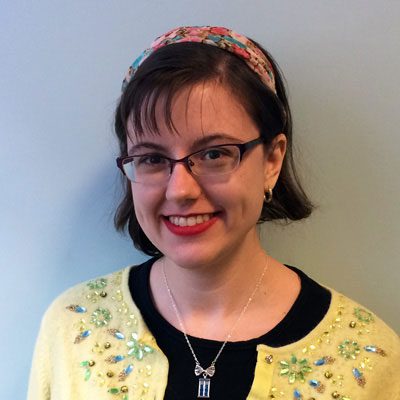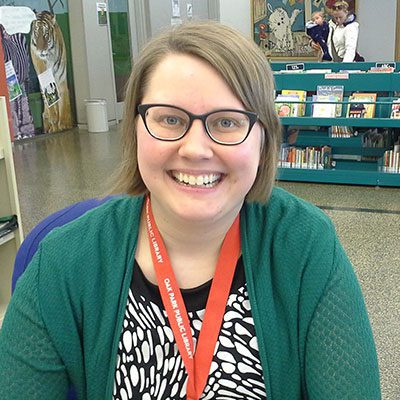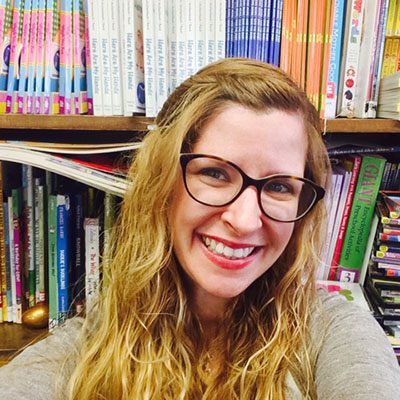When it comes to learning, there is no such thing as starting too early. Research tells us how important it is to introduce literacy concepts to children in their first years of life, even as newborns. It’s why we strategically support parents, caregivers, teachers, babies, toddlers, and preschoolers—with library-based resources and expertise as well as active community partnerships. Here are five ways the library supports early literacy and learning in our community.

1. Introducing babies—and their caregivers—to the essential building blocks of reading.
Librarian Shelley Harris, who focuses on children’s early literacy, says one of her job perks is getting to see babies grow up into readers. “When you introduce literacy from birth, you’re priming the child for a lifetime of learning,” she said.
For bouncing babies, toddlers, and preschoolers, the library holds storytimes throughout the week at all locations. All are designed to lay the foundation for future reading skills by encouraging caregivers to share books, songs, stories, words, rhymes, sounds, and play.
“Good rhymers make good readers later,” said Harris (pictured here). “Researchers have learned that the more nursery rhymes a child is able to say by themselves at age 4, the better reader they are going to be by age 8.”

2. Connecting families with and through new technology.
“Digital literacy is just as important as print literacy, and it’s a lot harder to create a level playing field in the digital space,” Harris said. “Access is one part of it, but use is by far more important. People use technology in different ways. It’s not just putting it in their hands, but showing them all the ways they can use it.”
If traditional library storytimes help show adults how to interact with kids over picture books, the library’s digital storytime, DigiTales, models how adults can interact with preschoolers over quality ebooks and apps.
“I get a lot of parent questions about digital apps for learning,” said Librarian Anne Bensfield (pictured here). “For ages 2 through 6, there are so many quality early learning apps out there that parents don’t know about.” In DigiTales, Bensfield focuses on how various apps can support certain goals, such as learning how to reduce stress, speak a new language, or prepare for kindergarten. “There are ways for parents to make screen time quality time, and a time to learn together,” she said.
Using technology with preschoolers should be intentional at home and at the library, Bensfield said. Which is why, at the Main Library, iPads for kids were recently moved from the free-play area to behind the Children’s Services desk, where they can be checked out for up to an hour at a time. “In this hyper-connected world, we realized many parents come to the library to have unplugged time with their families, and we want that to still be possible for those families,” she said. “By requiring checkout for these devices, we hope to empower grown-ups to be able to set boundaries for their little ones with our digital devices. We are very committed to digital learning, but we are aiming for a balanced approach.”
Bensfield also partners with Oak Park Elementary School District 97 every year to hold tech workshops that help parents of school-age children understand what digital resources are available both through the library and at their children’s schools.
3. Partnering with experts who share similar goals.
The library is a founding member of the Collaboration for Early Childhood, a nonprofit committed to helping Oak Park children get a strong start in life. “The library’s vibrant early literacy programs and resources are an important part of the fabric of early childhood in Oak Park,” said Collaboration Executive Director Carolyn Newberry Schwartz. “We are excited about our deepening relationship and the growing possibilities to improve supports for the early childhood community.”
4. Texting tips to you, so learning fits your schedule.
Parents, caregivers, and teachers who have signed up for the library’s Early Bird Readers program are now receiving weekly text messages full of tips and activities to share with babies, toddlers, and preschoolers, plus links to additional videos every month. One idea our children’s librarians recently texted: “Share Play: Don’t just read stories, act them out! It builds reading comprehension. Read a jungle book, then pretend to explore one.”

“We’re helping caregivers work things into daily routines,” Harris said. “They’re already doing so much, this is just one way they can be more intentional about doing the little extra things that really add up.”
5. Meeting children where they are.
If you watch an Early Bird Readers video, you can see the kind of enthusiasm that Branch Supervisor Jenny Jackson brings to her storytimes, both inside and outside the library. To reach families outside the library, she visits local daycare centers and preschools to offer about five storytimes each week.
Jackson (pictured here) often chooses books to complement what teachers are focusing on. But whatever the topic, “Play is the integral part that gets kids excited about learning,” she said.
Harris added: “We are always thinking about how to reach more Oak Park kids in more collaborative ways. We know that working parents have limited hours, so we want to bring the library to them and their children as much as we can.”

